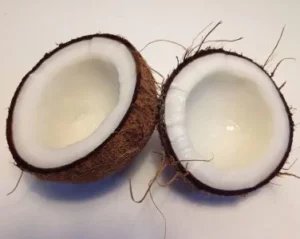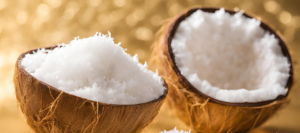Exporting Eco-Friendliness: Indian Coconuts and Sustainable Practices
Image: grofarm ug
Coconuts, synonymous with tropical paradise, have become a global sensation due to their versatile nature and numerous health benefits. As the demand for coconuts and coconut byproducts continues to rise, it is essential to understand the importance of sustainable practices in the coconut industry. In this article, we will explore how Indian coconuts are leading the way in eco-friendly production and the efforts taken by grofarm ug, a leading mature coconut and coconut byproducts exporter from India.
Sustainable Farming: The Foundation of Indian Coconuts
India, one of the largest coconut producing countries, has a deep-rooted culture of sustainable farming. Indian coconut plantations are typically small-scale family-owned farms, where farmers have been practicing sustainable techniques for generations.
Organic Farming
Organic farming techniques are widely adopted across Indian coconut plantations. Farmers prioritize organic fertilizers, avoiding harmful chemical pesticides and genetic modifications. By embracing organic practices, Indian coconut farmers ensure the preservation of soil fertility and reduce the risk of chemical contamination.
Water Management
Water scarcity is a global concern, and Indian coconut farmers are acutely aware of it. They rely on rainwater harvesting methods and efficient irrigation systems to minimize water consumption. Additionally, they practice mulching techniques to preserve soil moisture, prevent weed growth, and reduce water evaporation.
Biodiversity Preservation
Indian coconut plantations are known for their diverse ecosystem. Farmers understand the vital role of biodiversity in maintaining the overall health of the coconut ecosystem. They strive to protect and promote native flora and fauna, which naturally contribute to the productivity and sustainability of the coconut farms.
grofarm ug: A Beacon of Sustainable Coconut Trade
grofarm ug, based in India, is fully committed to promoting sustainable and eco-friendly practices in the coconut industry. With a strong emphasis on quality, ethical sourcing, and environmental responsibility, they have set themselves apart as a leading exporter of mature coconuts and coconut byproducts.
Fair Trade and Ethical Sourcing
grofarm ug ensures fair trade practices by working closely with small-scale coconut farmers. They provide fair wages and prioritize the wellbeing of the farmers and their communities. By collaborating directly with farmers, grofarm ug strengthens the local economy and encourages sustainable farming practices.
Carbon Footprint Reduction
Recognizing the importance of minimizing carbon emissions, grofarm ug has implemented various measures to reduce their carbon footprint. They optimize transportation logistics, reduce energy consumption, and promote renewable energy sources within their production facilities. By prioritizing sustainable transportation and energy consumption, grofarm ug actively contributes to global efforts in combating climate change.
Waste Management and Byproduct Utilization
grofarm ug carefully manages waste generated during the production process. They implement effective waste management techniques, including composting and recycling, to minimize environmental impact. Additionally, they utilize coconut byproducts efficiently, ensuring that almost every part of the coconut is utilized, thereby minimizing waste generation.
The Global Impact: Choose Sustainable Indian Coconuts
By choosing Indian coconuts and sourcing from grofarm ug, buyers worldwide can actively support sustainable practices and contribute to a greener future. Here are a few reasons why selecting sustainable Indian coconuts is a beneficial choice:
Environmental Conservation: Indian coconut farms emphasize biodiversity preservation and ecological balance, ensuring the protection of natural resources and habitats.
Health and Safety: Organic farming practices contribute to the production of healthier coconuts, free from harmful chemicals and residues.
Ethical Trade: By supporting fair trade, buyers contribute to the economic development of small-scale coconut farmers and their communities.
Reduced Carbon Footprint: Sourcing from grofarm ug, with their sustainable transportation and energy consumption practices, helps reduce the carbon footprint associated with coconut transportation.
Waste Reduction: By utilizing coconut byproducts effectively, the coconut industry minimizes waste generation and contributes to a circular economy.
In an era where sustainability is paramount, Indian coconut exports embody the essence of eco-friendliness. Through their commitment to sustainable farming, fair trade, waste management, and carbon footprint reduction, Indian coconuts lead the way in promoting a greener future for the coconut industry. Choose sustainable Indian coconuts, support grofarm ug, and be a part of the global effort in preserving our planet for future generations.
This article was brought to you by grofarm ug, a leading exporter of mature coconuts and coconut byproducts from India.



